
Search engines are evolving to deliver faster, more convenient results for users. One major shift is the rise of zero-click searches, where users get their answers directly on the search results page without needing to click on any website.
While this trend enhances user experience, it poses a unique challenge for businesses aiming to drive traffic to their websites. Understanding zero-click searches and their impact on SEO is essential for adapting your strategies and maintaining online visibility in this competitive landscape.
What Are Zero Click Searches?
Zero-click searches are searches where users find the information they need directly on the search engine results page (SERP), without having to click on any link. This trend has become more common as search engines have evolved to provide more direct answers to users’ queries.
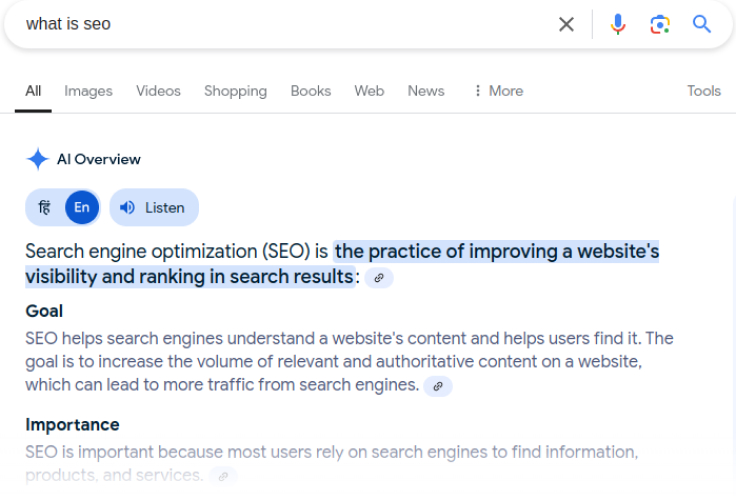
Types of Zero Click Searches
- Featured Snippets: Short answers extracted from websites, displayed at the top of the search results. These may include lists, definitions, or tables.
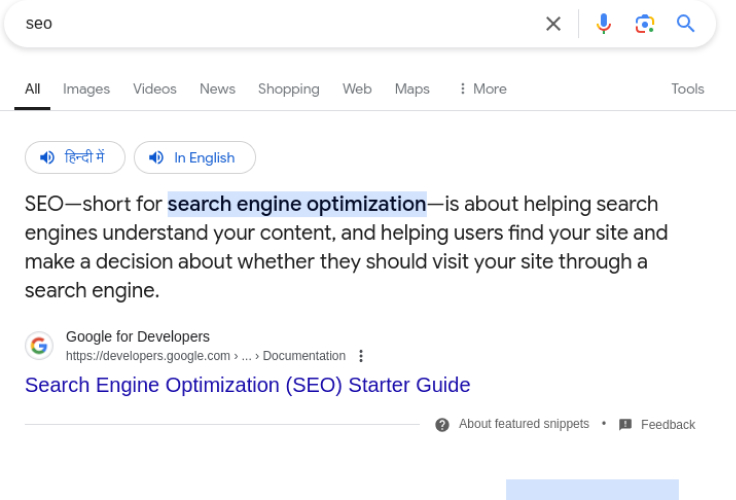
- Knowledge Panels: Information related to a business, person, place, or thing, such as a company’s address, phone number, or social media links. These often appear on the right side of the search results.
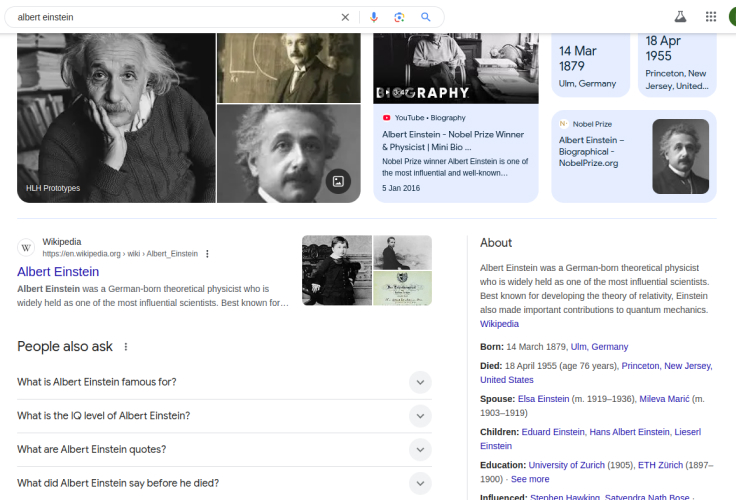
- Direct Answers: Quick responses to factual queries, such as “What’s the weather?” or “What is 2+2?” These are directly provided by the search engine.
- People Also Ask (PAA): Expandable question-and-answer boxes offering related queries, helping users explore additional topics.
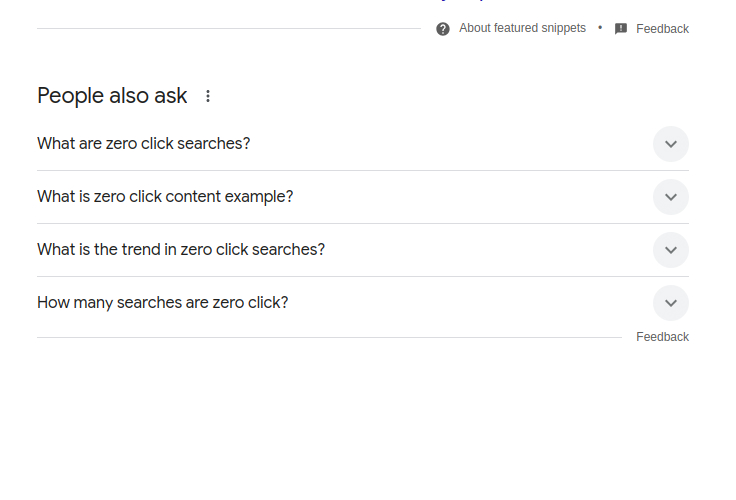
- Local Packs: Google’s local pack displays businesses and locations that are relevant to a user’s search query, like “restaurants near me.” It provides a map and business details without needing to click.
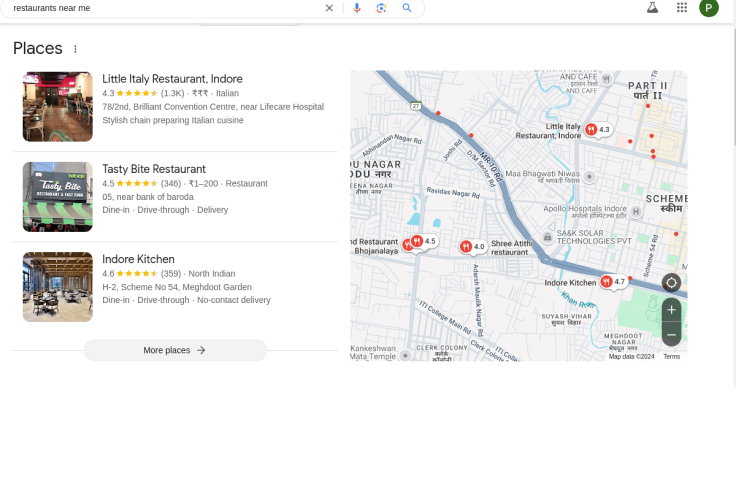
- Image and Video Carousels: Visual results, such as image or video thumbnails, shown directly in the search for media-related queries.
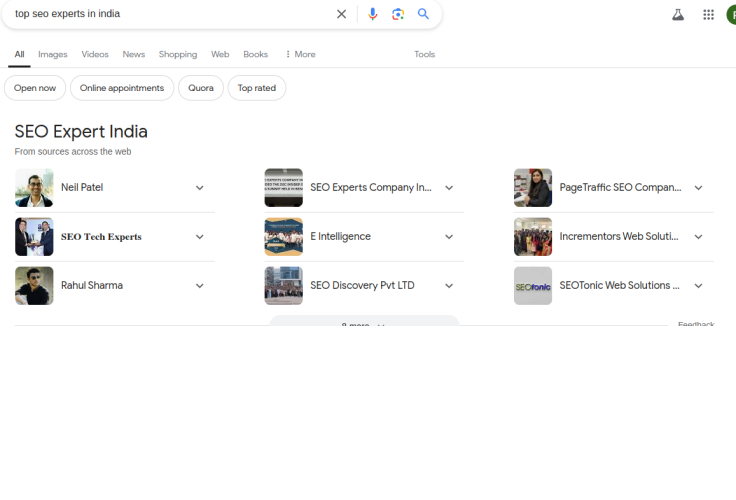
- Search Engine Tools: Functional widgets like calculators, currency converters, or live sports scores, providing interactive answers on the results page.
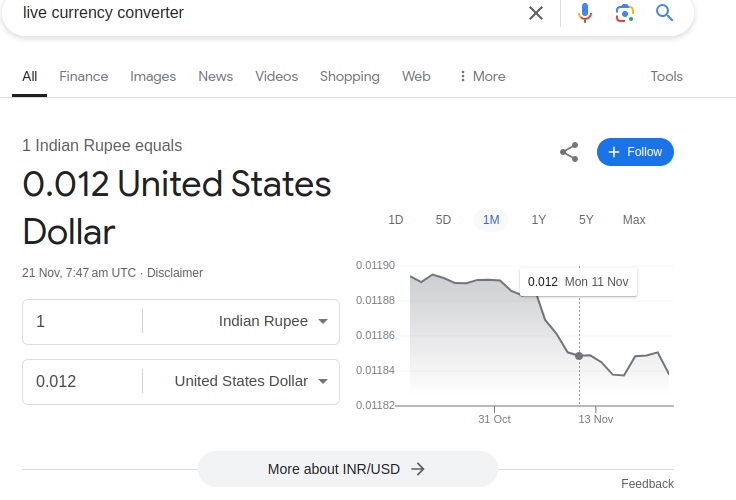
- Maps Integration: Embedded map results, particularly for queries like “restaurants near me,” showing locations directly in the SERP.
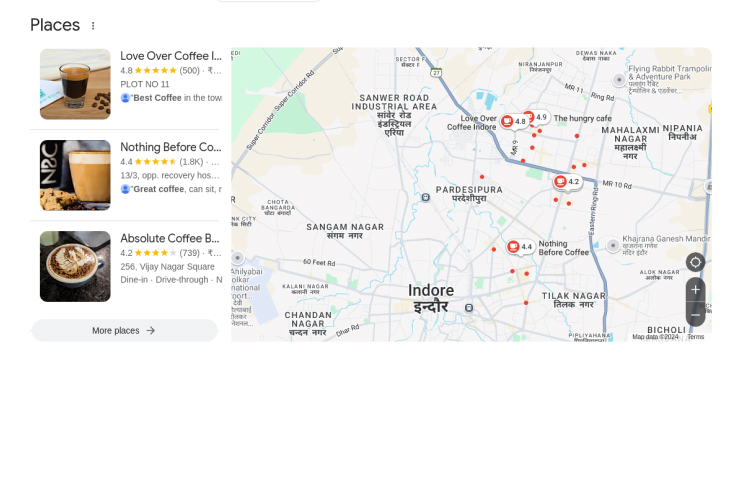
How They Differ from Traditional Search Results
Users must click on a link to access the content that answers their question in traditional search results. With zero-click searches, though, the search engine provides the answer right on the SERP-meaning there’s no need for a click. On the upside for users looking for an answer, it also means businesses have to focus more on optimizing their content to appear in these result features.
Why Are Zero Click Searches Increasing?
Zero-click searches are becoming increasingly popular because they provide instant answers to users without requiring them to click through to a website. Here’s why they are increasing:
Search engines favor fast and easy answers, and this makes it easier for a user to obtain answers as quickly as possible.
Since mobile users favor quick on-the-go solutions, zero-click searches are designed to provide quick solutions.
Devices offering voice search provide short, direct responses to queries, enhancing user convenience.
Advanced search engine features like snippets and panels simplify searches by presenting information upfront.
AI and improved algorithms ensure accurate answers appear instantly on search results pages.
How Do Search Engines Determine Zero-Click Results?
Search engines, such as Google, use very advanced algorithms to determine which content to rank as zero-click results. These algorithms scan for content where an answer can be straightforwardly identified to a user’s query and be easily understood. They also prefer structured data and high-quality content that is organized and relevant to the intent of the user’s search. Factors such as:
- Keyword relevance: How well does the content match the user’s search query?
- Content quality: Is the content informative, accurate, and well-structured?
- Website authority: Does the website have a strong domain authority and backlink profile?
- User experience: Is the website mobile-friendly, fast-loading, and easy to navigate?
Importance of Understanding Zero Click Searches in SEO
With zero-click searches on the rise, the strategies employed for SEO have taken a massive knock. It is an awareness necessary for businesses that desire to keep growing as the online presence expands. Because more answers today may be found directly within the search results, and users find fewer clicks on organic listings, it becomes important for SEO experts to rethink their approach even further.
Where Google ranked a business on page one was the key to driving traffic. Today, even if you rank in first position, the traffic you once expected may not be coming, if your content is not featured as a snippet or knowledge panel.
How Zero-Click Searches Are Changing the SEO Game
Zero-click searches have really shaken up the traditional SEO landscape. As more and more users find their answers directly from the results pages, so much fewer click to organic search results. This is a situation wherein your site may rank high in Google but not necessarily bring in organic traffic.
How to Win Visibility Without the Click
To adapt to the growing trend of zero-click searches, businesses need to adjust their SEO strategies. Here are some key optimization strategies:
On-Page SEO Strategies
- Keyword Research and Optimization: Start by understanding the keywords that are most likely to trigger zero-click results. Use keyword research tools to find questions users are asking and target these with well-crafted content.
- Creating High-Quality Content: Content that provides clear, concise answers is more likely to be featured as a zero-click result. Use bullet points, numbered lists, and direct answers to make it easy for search engines to extract your content as a snippet.
- Schema Markup Implementation: Adding schema markup to your website will enable search engines to understand the semantics in the content in the website, and therefore, its chances of appearing in zero-click results such as knowledge panels and rich snippets are high.
Technical SEO Considerations
- Website Speed and Mobile-Friendliness: With mobile-first indexing and the demand for fast answers, ensure that your site loads quickly and is mobile-friendly too.
- Secure HTTPS Connection: Google prioritizes secure websites (those with HTTPS). Make sure your website uses HTTPS to increase your chances of ranking for zero-click queries.
Off-Page SEO Techniques
- Building High-Quality Backlinks: High-quality backlinks from reputable sites go a long way to tell search engines that your content is trustworthy and authoritative. This, in turn, means that there is a higher chance of appearing zero-click searches.
- Leveraging Social Media: Social media mentions and shares can boost your website’s visibility, helping your content appear in zero-click results more often.
Measuring the Impact of Zero-Click Searches
To track the effectiveness of your zero-click SEO efforts, consider the following metrics:
- Organic Traffic: Track your website’s organic traffic to estimate the overall performance.
- Click-Through Rates (CTRs): See how your organic search results’ CTRs can improve.
- Featured Snippet and Knowledge Panel Appearances: Track whether your website is appearing in featured snippets and knowledge panels by accessing Google Search Console.
Conclusion
Zero-click searches are changing the world of SEO, and you have to keep up with the trend. Featured snippets and knowledge panels as well as local results are good ways to get your content in front of the eyes of your prospective customer without needing traditional clicks.
Take this opportunity to produce content with clear and concise language and well-structured form while getting benefits from zero-click results. Besides increasing the visibility of your content, you will also work towards increasing the authority in the niche for your brand.
It gets difficult to rank for zero-click searches when users can get quick answers to their questions from your content. Focus on answering most common queries directly and concisely.
Since SEO is constantly changing, zero-click searches come into a multidimensional role while keeping up-to-date. By embracing the changes and tailoring your SEO strategy, you can ensure that your business will remain strong in the digital horizon.
Frequently Asked Questions (FAQ)
What are zero click searches and why should SEOs care?
Zero click searches are search results where users get the answer directly on the search page—without clicking any link. These include featured snippets, definitions, maps, or calculators.
Why SEOs should care: They reduce website traffic, even for top-ranking pages. However, showing up in these spots can boost visibility, brand trust, and support voice search optimization.
How do zero click searches impact your website traffic?
Zero click searches reduce the number of visitors to your website because users get the information they need directly on the search results page—without clicking through. Even if your content ranks at the top, it might not receive traffic if the answer appears in a featured snippet, knowledge panel, or instant result.
This means SEOs need to shift focus from just ranking to also owning SERP features and improving brand visibility—even without the click
Can you really win in SEO without getting the click?
Yes, you can still win in SEO without getting the click. Appearing in zero click features like featured snippets, knowledge panels, or “People Also Ask” boxes boosts your brand visibility, builds trust, and positions you as an authority—even if users don’t visit your site.
While you may not get direct traffic, you gain impression value, increase brand recall, and improve your chances of being clicked in future searches or recognized through voice assistants.
What types of search queries trigger zero click results the most?
Zero click results are most common for quick, fact-based queries where users are looking for immediate answers. These include:
- Definitions (e.g., “What is inflation?”)
- Calculations (e.g., “20% of 150”)
- Time and date (e.g., “Time in London”, “When is Diwali 2025?”)
- Weather (e.g., “Weather in New York”)
- Conversions (e.g., “USD to INR”, “100 cm in inches”)
- Maps and directions (e.g., “Coffee shop near me”)
- Public figures and events (e.g., “President of France”, “Olympics 2024 schedule”)
These queries often trigger featured snippets, answer boxes, local packs, or knowledge panels—leading users to get what they need without clicking.
How can you optimize your content to appear in zero click searches?
Appear in zero click searches, provide clear answers to common questions at the top of your content. Use headings, bullet points, and FAQ sections to make information easy to scan. Adding schema markup helps search engines understand your content better. Focus on question-based keywords like “what is” or “how to,” which are more likely to trigger featured snippets or answer boxes.





